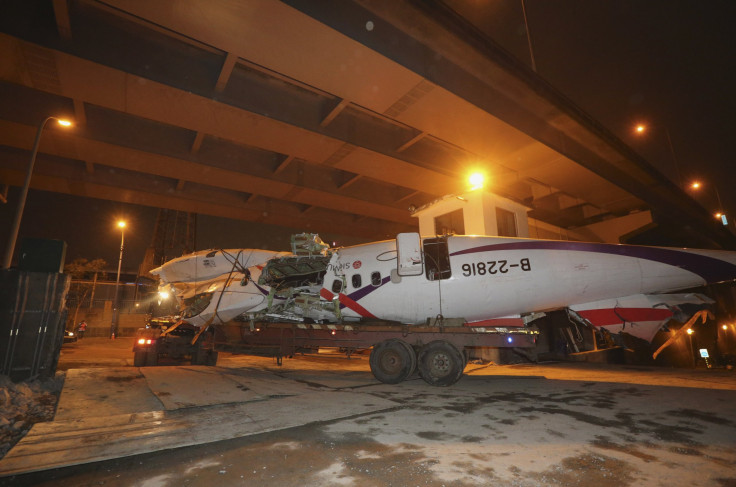TransAsia Safety Record: ATR 72 Fleet Had History Of Engine Problems

Even before the TransAsia Flight 235 crash on Wednesday, the airline’s ATR 72 fleet had a history of engine failures -- five in five years, according to a civil aviation official. TransAsia’s recent crash was from that fleet, an ATR 72-600 model, and aviation authorities have since ordered the airlines to conduct special checks on its fleet.
Lin Chun-liang, Taiwan’s Civil Aeronautics Administration (CAA) flight standards division chief, said on Friday that TransAsia’s ATR 72 fleet had three reports of poor manufacturing quality on its engine and two reports of lapses in aircraft maintenance and repairs, reported local paper Focus Taiwan. Two of the flags on manufacturing quality were found on the ATR 72-600 plane that crashed Wednesday shortly after takeoff into the Keelung River, killing at least 35 of the 58 people on board.
The downed plane apparently had an engine stall once last April, according to Taiwan United Daily News. The malfunction reportedly was caused by excessive oil output in the lubricant system. The faulty engine was then replaced, so it is unclear if the oil issue was the cause of Wednesday’s crash. Another ATR 72 plane’s engine caught fire in August 2011, and lapses in maintenance were found in October 2010 and August 2011, both causing abnormal engine functions. Lin said that TransAsia has not completed even a third of its required improvements ordered by the authority, according to Focus Taiwan.
TransAsia’s recent crash makes it its fifth since 1995, according to Reuters, with its previous crash in July last year caused by a failed landing amid bad weather; 48 of the 58 on board were killed in the flight from Kaohsiung in southern Taiwan to Penghu. Of the five crashes, three were fatal, including Wednesday’s crash, and two were considered major incidents, showed data from air industry consultancy Flightglobal Ascend, according to Reuters.
CAA has ordered TransAsia to conduct extra-stringent checks on its remaining 10 ATR aircraft, a combination of 72-500s and 72-600s. Planes that have completed the checks resumed operations on Thursday.
During this incident, Taipei Vice Mayor Chen Wei-ren has implored Taiwanese not to be scared off from taking planes because of the TransAsia incident. “Even though this has been a very sad incident,” Chen said, according to United Daily News, “airplanes are still a very safe form of public transportation.”
© Copyright IBTimes 2024. All rights reserved.












